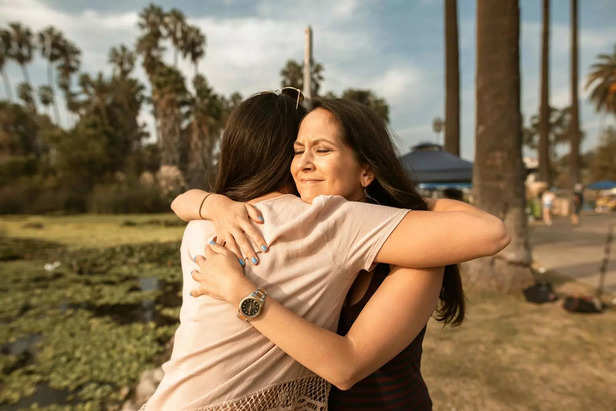How to Politely End a Friendship Without Hurting Others – Chanakya Niti
Riya Kumari | Feb 19, 2025, 23:58 IST
Chanakya
( Image credit : Times Life Bureau )
It’s tempting to think that cutting ties is as simple as sending a text or avoiding someone until they eventually get the hint. But this approach can leave unresolved tension in its wake. The truth is, ending a friendship—especially a meaningful one—isn’t just about walking away; it’s about ensuring that the departure is done in a way that preserves mutual respect and understanding. It’s about showing that you care enough about the other person to handle the situation with maturity.
Friendships, much like the chapters of a book, have their beginnings, their middle, and inevitably, their endings. The challenge isn’t in knowing when to close the book—it’s in how to do so with grace, without inflicting harm or leaving scars. Ending a friendship, especially one that has lasted, requires more than just the will to walk away; it demands wisdom, awareness, and the ability to approach the situation with an understanding of both your feelings and the other person’s. Most of us have been in that place. You’ve outgrown someone, or maybe your paths have just diverged. The question arises: How do you part ways without becoming the villain of the story? How do you preserve the dignity of the bond you shared while also accepting that it no longer fits your life?
1. Acknowledge the Shared Journey

First, let’s talk about what’s not often said in these situations: The bond you shared, no matter how long or deep, mattered. Whether it was the late-night conversations, the shared experiences, or the way they were a part of your life during certain moments—it was real. So, don’t rush into the decision to leave without honoring what that friendship was. Acknowledging the value of what has been shared doesn’t weaken your decision to part ways; it strengthens it.
When you approach the conversation with gratitude for the time spent together, it becomes clear that the decision isn’t about blame, but about growth. You are not dismissing them as a person. You are recognizing that life is a series of changes, and sometimes, people evolve in ways that don’t allow them to stay in each other’s orbit. It’s painful, yes, but it’s also inevitable.
2. Communicate with Honesty, But with Care

Chanakya, the ancient strategist, often spoke of the importance of communication. Not just any communication, but communication that comes from a place of clarity and integrity. When it’s time to have the conversation, do so with respect. Don’t sugarcoat it, but don’t brutalize it either. Your words should reflect the truth—about your feelings, about where you’re at in your life, and about where the relationship stands.
Be honest, but be gentle. You don’t have to launch into a deep dissection of every reason why things changed. The point isn’t to justify or to open old wounds; it’s to state that you are moving in a different direction, and that sometimes, people drift apart because their paths no longer align. Sometimes, honesty is simply acknowledging that the friendship no longer serves either of you in the way it once did. It’s a hard truth, but one that everyone has to face sooner or later.
3. Take Responsibility for Your Part

Ending a friendship with grace means being accountable for your own actions. If you’ve grown distant, or if you’ve noticed that your efforts have waned, don’t deflect that onto the other person. Instead of blaming them for being needy or out of sync with you, look inward. Recognize that relationships are built on mutual effort, and that if something isn’t working, it’s rarely one-sided.
This doesn’t mean you’re at fault, but it means that you are acknowledging the dynamics at play. Sometimes, things fizzle because of neglect or miscommunication on both sides. Be responsible for your part. This not only shows maturity but offers the other person some sense of closure—there’s no blame, only the understanding that both of you contributed to where things ended up.
4. Give Them Space for Their Own Feelings

A person may not always respond with the level of grace you’d hope for. Ending a friendship can trigger a range of emotions in the other person, from anger to sadness to confusion. It’s important to understand that their feelings are valid, even if they aren’t aligned with yours. Just because you’ve made your peace with the decision doesn’t mean they have.
Respect their need for space. If they need time to process, give it to them. Don’t try to “fix” things or smooth over the situation immediately. Sometimes, the best thing you can do for someone is allow them the room to feel their emotions. This isn’t about dragging things out, but about letting them come to terms with it in their own way.
5. Leave Room for Growth and Respect the Decision

When you choose to end a friendship, you have to do so in a way that allows both you and the other person to grow from it. People don’t stay the same forever, and that includes the roles they play in your life. Just because you’re no longer friends doesn’t mean that the relationship didn’t serve a purpose. The best way to honor what you shared is by respecting the decision. Don’t make a show of it, and don’t turn it into something bigger than it needs to be.
Instead, understand that life is about seasons. Some relationships are meant to last forever; others are meant to teach you something and then fade. Both are valuable. The act of letting go should be viewed not as an end, but as a natural progression of growth.
Walk Away Without Regret, But With Wisdom
When all is said and done, the most important part of ending a friendship is the ability to do so without regret. If you’ve handled the situation with care, honesty, and maturity, there is no need for guilt. The decision to part ways was made with wisdom, with the understanding that the future holds more for both of you, but just not together.
Walk away knowing that you’ve given the friendship the respect it deserved. No anger. No bitterness. Just a simple acknowledgment that sometimes, the best thing for both people is to move forward separately. In doing so, you carry with you not the weight of a failed relationship, but the lessons learned and the growth you’ve experienced. Ending a friendship isn’t easy, but it’s a part of life. The true challenge lies not in the ending itself, but in how we handle it. By embracing wisdom, honesty, and respect, we allow ourselves and others the space to heal and grow.
1. Acknowledge the Shared Journey

Friends
( Image credit : Pexels )
First, let’s talk about what’s not often said in these situations: The bond you shared, no matter how long or deep, mattered. Whether it was the late-night conversations, the shared experiences, or the way they were a part of your life during certain moments—it was real. So, don’t rush into the decision to leave without honoring what that friendship was. Acknowledging the value of what has been shared doesn’t weaken your decision to part ways; it strengthens it.
When you approach the conversation with gratitude for the time spent together, it becomes clear that the decision isn’t about blame, but about growth. You are not dismissing them as a person. You are recognizing that life is a series of changes, and sometimes, people evolve in ways that don’t allow them to stay in each other’s orbit. It’s painful, yes, but it’s also inevitable.
2. Communicate with Honesty, But with Care

Deep talk
( Image credit : Pexels )
Chanakya, the ancient strategist, often spoke of the importance of communication. Not just any communication, but communication that comes from a place of clarity and integrity. When it’s time to have the conversation, do so with respect. Don’t sugarcoat it, but don’t brutalize it either. Your words should reflect the truth—about your feelings, about where you’re at in your life, and about where the relationship stands.
Be honest, but be gentle. You don’t have to launch into a deep dissection of every reason why things changed. The point isn’t to justify or to open old wounds; it’s to state that you are moving in a different direction, and that sometimes, people drift apart because their paths no longer align. Sometimes, honesty is simply acknowledging that the friendship no longer serves either of you in the way it once did. It’s a hard truth, but one that everyone has to face sooner or later.
3. Take Responsibility for Your Part

Hurt
( Image credit : Pexels )
Ending a friendship with grace means being accountable for your own actions. If you’ve grown distant, or if you’ve noticed that your efforts have waned, don’t deflect that onto the other person. Instead of blaming them for being needy or out of sync with you, look inward. Recognize that relationships are built on mutual effort, and that if something isn’t working, it’s rarely one-sided.
This doesn’t mean you’re at fault, but it means that you are acknowledging the dynamics at play. Sometimes, things fizzle because of neglect or miscommunication on both sides. Be responsible for your part. This not only shows maturity but offers the other person some sense of closure—there’s no blame, only the understanding that both of you contributed to where things ended up.
4. Give Them Space for Their Own Feelings

Dissapointed
( Image credit : Pexels )
A person may not always respond with the level of grace you’d hope for. Ending a friendship can trigger a range of emotions in the other person, from anger to sadness to confusion. It’s important to understand that their feelings are valid, even if they aren’t aligned with yours. Just because you’ve made your peace with the decision doesn’t mean they have.
Respect their need for space. If they need time to process, give it to them. Don’t try to “fix” things or smooth over the situation immediately. Sometimes, the best thing you can do for someone is allow them the room to feel their emotions. This isn’t about dragging things out, but about letting them come to terms with it in their own way.
5. Leave Room for Growth and Respect the Decision

Hug
( Image credit : Pexels )
When you choose to end a friendship, you have to do so in a way that allows both you and the other person to grow from it. People don’t stay the same forever, and that includes the roles they play in your life. Just because you’re no longer friends doesn’t mean that the relationship didn’t serve a purpose. The best way to honor what you shared is by respecting the decision. Don’t make a show of it, and don’t turn it into something bigger than it needs to be.
Instead, understand that life is about seasons. Some relationships are meant to last forever; others are meant to teach you something and then fade. Both are valuable. The act of letting go should be viewed not as an end, but as a natural progression of growth.
Walk Away Without Regret, But With Wisdom
Walk away knowing that you’ve given the friendship the respect it deserved. No anger. No bitterness. Just a simple acknowledgment that sometimes, the best thing for both people is to move forward separately. In doing so, you carry with you not the weight of a failed relationship, but the lessons learned and the growth you’ve experienced. Ending a friendship isn’t easy, but it’s a part of life. The true challenge lies not in the ending itself, but in how we handle it. By embracing wisdom, honesty, and respect, we allow ourselves and others the space to heal and grow.
